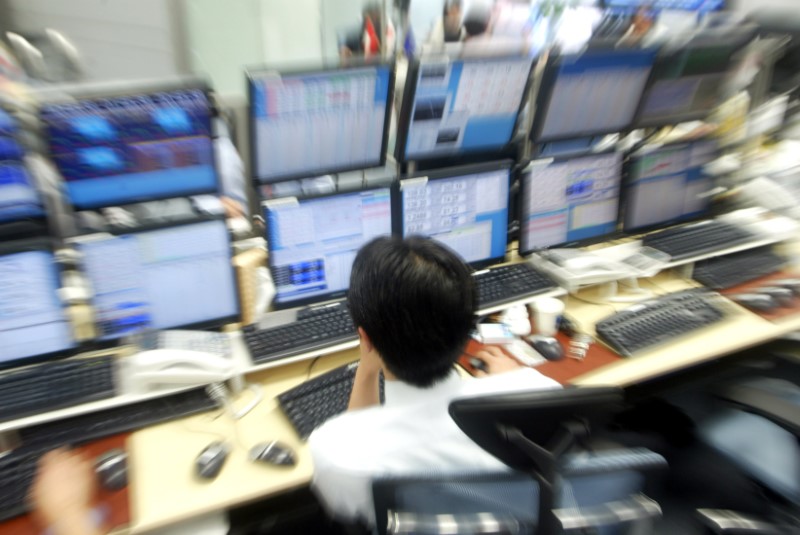By David Lawder
WASHINGTON (Reuters) - U.S. President Donald Trump's administration declined to name any major trading partner as a currency manipulator in a highly anticipated report on Friday, backing away from a key Trump campaign promise to slap such a label on China.
The semi-annual U.S. Treasury currency report did, however, keep China on a currency "monitoring list" despite a lower global current account surplus, citing China's unusually large, bilateral trade surplus with the United States.
Five other trading partners who were on last October's monitoring list - Japan, South Korea, Taiwan, Germany and Switzerland - also remain on the list, ensuring that the Treasury would apply extra scrutiny to their foreign exchange and economic policies.
The Treasury report recognized what many analysts have said over the past year, namely that China has recently intervened in foreign exchange markets to prop up the value of its yuan currency, not push it lower to make Chinese exports cheaper.
Foreign exchange experts told Reuters last week that a manipulator label was unlikely for Beijing.
Trump, who on the campaign trail blamed China for "stealing" U.S. jobs and prosperity by cheapening its currency, repeatedly promised to label the country as a currency manipulator on "day one" of a Trump administration - a move that would require special negotiations and could lead to punitive duties and other action.
The report did call out China's past efforts to hold down the yuan's value, saying this created a long-term "distortion" in the global trading system that "imposed significant and long-lasting hardship on American workers and companies."
The Treasury also warned that it will scrutinize China's trade and currency practices very closely and called for faster opening of China's economy to U.S. goods and services and a shift away from exports to more domestic consumption.
"China will need to demonstrate that its lack of intervention to resist appreciation over the last three years represents a durable policy shift by letting the RMB (yuan) rise with market forces once appreciation pressures resume," the report said.
The report shows the Trump administration is taking an approach to foreign exchange based on data rather than politics, said Nathan Sheets, a former U.S. Treasury under secretary for international affairs during the Obama administration.
"This isn't the report that Donald Trump had in mind on Nov. 8," said Sheets, who is now with the Peterson Institute for International Economics in Washington. "But it lays out legitimate complaints. It's a clear statement to the Chinese that they need progress."
The Treasury did not alter its three major thresholds for identifying currency manipulation put in place last year by the Obama administration: a bilateral trade surplus with the United States of $20 billion or more; a global current account surplus of more than 3 percent of gross domestic product, and persistent foreign exchange purchases equal to 2 percent of GDP over 12 months.
No countries were determined to have met all three of these criteria, but Japan, South Korea, Taiwan, Germany and Switzerland all met two of them.
The Treasury warned Japan against resuming currency interventions, saying that these "should be reserved only to very exceptional circumstances with appropriate prior consultations, consistent with Japan’s G-7 and G-20 commitments."
(For graphic on currency manipulation, click http://tmsnrt.rs/2p7aUox)

(Link to the Treasury report: